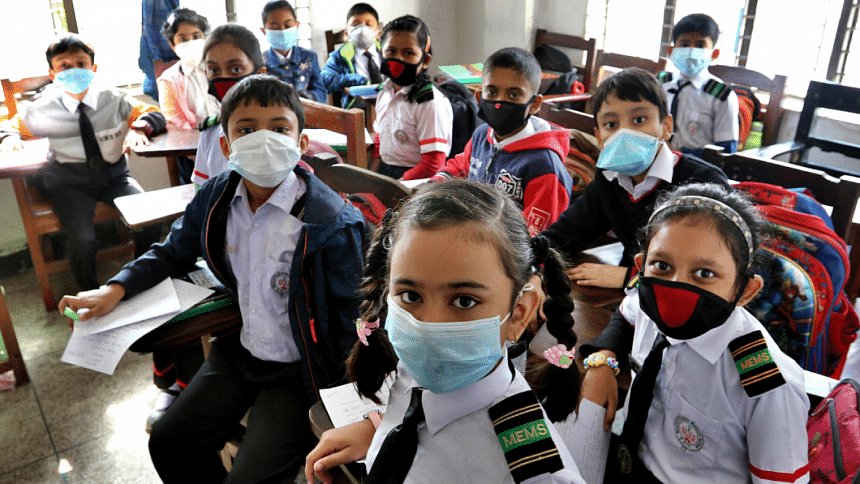Are school closures difficult on children from authoritarian households?

Growing up, I was that friend in the group who rarely showed up at hangouts, always had a super-early curfew, and had to keep notifying their parents about their whereabouts every hour.
Sad as it may sound, one of the very few instances of respite from my parents' constant agency over every trivial thing I did was the time I got to spend with my friends during school hours and tutorial classes.
The very same scenario seemed to be a reality for a lot of my peers. While the restrictions did slacken for me after a certain period of time, it didn't happen until after the first lockdown in 2020. Hence, having experienced being cut off from the barest minimum scope of real-life socialisation back then myself, I wonder whether kids hailing from overly restrictive households are actually worse off when educational institutions are closed.
Over the past couple of months, most schools had reopened, only to return to online classes again. Though schools are resuming in-person classes soon, there is always a chance for another closure if the situation worsens again. With closures come the immediate hiccups of going back to seeing and interacting with your friends mostly through a blurry webcam during a Zoom class.
While it is crucial that we stay safe and indoors, it is still possible to find ways of socialising face-to-face without violating social distancing and safety protocols. Unfortunately, for a lot of parents who have a history of being unreasonably strict about their children going out and such (even during normal times), along with the absence of physical academic classes, only translates to an excuse for absolute confinement within the house.
For example, interacting with friends that live in the buildings around from our balconies, meeting up in small numbers for an afternoon of refreshment on someone's empty rooftop, etc. However, teenagers having access to these small instances of privilege also depend on how supportive their household is.
While the unjustifiable constraints many young adults, especially girls, face over their agency of movement are somewhat tolerable when we get to stay out of the confines of our house during school hours or the extra classes afterwards, having at least some semblance of the said outlets taken away entirely, becomes simply unbearable. It often worsens mental health issues for numerous teenagers, which in turn takes a heavy toll on their academics and social life. This almost always leads to frequent conflicts with the parents as well, which causes another plethora of issues.
Being cautious of frequent outings and physical interactions according to coronavirus infection rates is always a good idea, but it is high time parents understood that being cautious does not have to be synonymous with isolation. It is hard enough to live within the lines drawn by authoritarian guardian figures in our youth, even without a raging pandemic and ridiculously slim scopes of maintaining a proper social life.

 For all latest news, follow The Daily Star's Google News channel.
For all latest news, follow The Daily Star's Google News channel. 



Comments